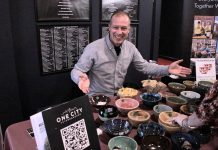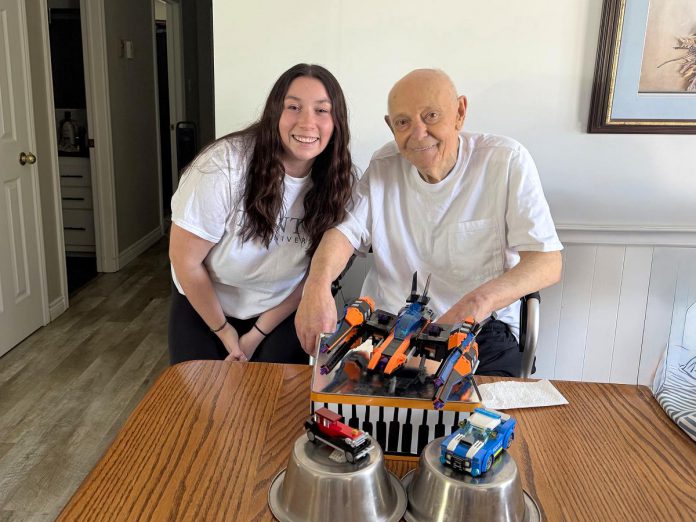
By volunteering with the local Alzheimer Society, Peterborough resident Kellie Dowdall not only helped a person living with dementia, but also enriched her own life.
As an in-home recreation therapy volunteer with the Alzheimer Society of Peterborough, Kawartha Lakes, Northumberland and Haliburton (Alzheimer Society PKLNH) since last fall, Dowdall has been spending at least one hour per week with Bob, a client of the organization, by participating in meaningful activities and conversations in his home.
“It’s making an impact in the community, even just on the one-on-one level, by having that connection and being able to provide meaningful support and meaningful time for an individual,” she says. “Not every day is a great day for them, because it is such an unpredictable disease, and just to have something that shines a little bit of light in their day honestly is impact enough. My biggest take away is being able to provide that to somebody.”
A recent graduate of Trent University’s social work program who will be continuing her studies with a master’s degree from Western University this fall, Dowdall was personally motivated to volunteer with the Alzheimer Society in 2023 because three out of her four grandparents have Alzheimer’s disease or other dementias — including one of her grandfathers who passed away from Alzheimer’s disease in 2021.
“Bob has a lot of similarities to my grandfather, so it was very just an amazing opportunity,” she says. “My grandfather lived in Sudbury so I didn’t always get to see him, and I couldn’t just go over and do things and support him, so it’s really nice to be able to even just give an hour of my time to do an activity or to chat with Bob.”
According to the Alzheimer Society, the catchment area of Peterborough, Kawartha Lakes, Northumberland, and Haliburton has one of the highest dementia rates in Ontario, with an estimated 14,790 people having been affected by Alzheimer’s disease or other forms of dementia. That number is expected to grow to more than 22,000 by 2030.
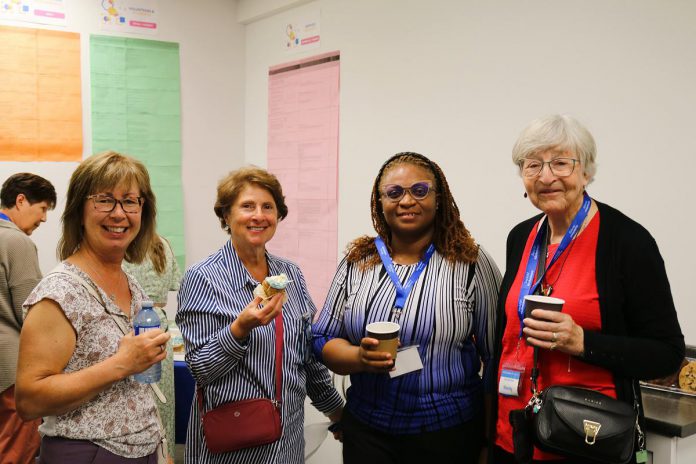
“The more volunteers we get on-boarded who are able to help with our programs and services, the more people we are able to serve and support,” says Alzheimer Society PKLNH resource development manager Ryan Arnold.
After losing many volunteers during the pandemic, the Alzheimer Society PKLNH received a $199,200 Resilient Communities Fund grant in 2023 from the provincial government’s Ontario Trillium Foundation. The grant helped revitalize the organization’s volunteer program with funding for more staff, communications and marketing, computer software, administration costs, and launching new volunteer-led programs.
“Volunteers are integrated into all aspects of the organization,” says Arnold. “More than 45 years ago, it was a bunch of volunteers around a table that kick-started the organization and it’s since grown into what it is today with the help of volunteers in the community.”
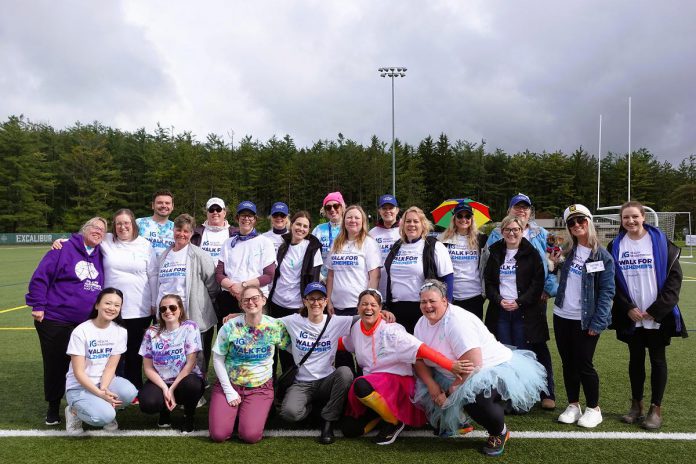
No experience is required for those interested in volunteering, as there is training for all new volunteers. In addition, roles can be flexible to each volunteer’s interests, skillsets, and availability.
Aside from the in-home recreation therapy program, volunteers can assist with running fundraising events, connecting with the community to build awareness, and providing in-office respite support for clients in a recreational setting while their caregivers attend Alzheimer Society education programs or support groups.
There are also opportunities to support Minds in Motion, an eight-week program that integrates physical activity and social interactions, and the new Coffee and Connections program which invites current and past clients of the organization to connect and support each other.
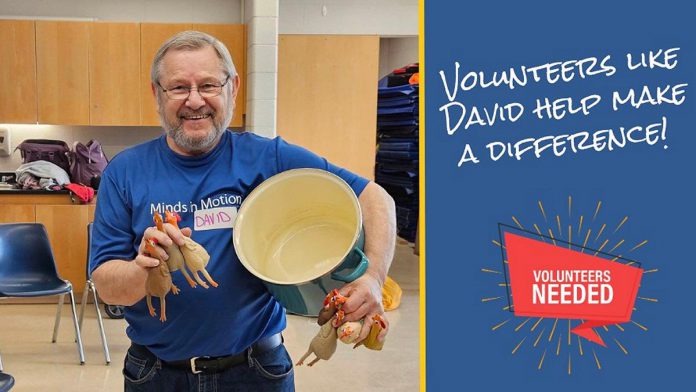
“Many volunteers are university students like Kellie, so they gain the experience to advance their career but they also learn about the myths and the stats around dementia and bring more awareness,” says Alzheimer Society PKLNH volunteer engagement coordinator Maddy Scott. “They often return having learned so much, while having fun, making connections, learning to interact with people living with dementia, and being a part of our community.”
“It keeps them connected to their community as well,” adds Arnold. “They have the opportunity to learn, build connections, and build friendships themselves. It’s really impactful for both the volunteer and the client.”
Over the course of several months of visits, Dowdall has spent many hours with Bob, engaging in conversations, going on walks, and looking through old photo albums. But most of their time together has been spent building with LEGO blocks.
“I honestly have never touched LEGO in my entire life,” Dowdall says, noting she and Bob began building cars before moving up to 100-piece Star Wars spacecraft. “He loves building things and I’ve had so much fun — maybe even more than he has.”
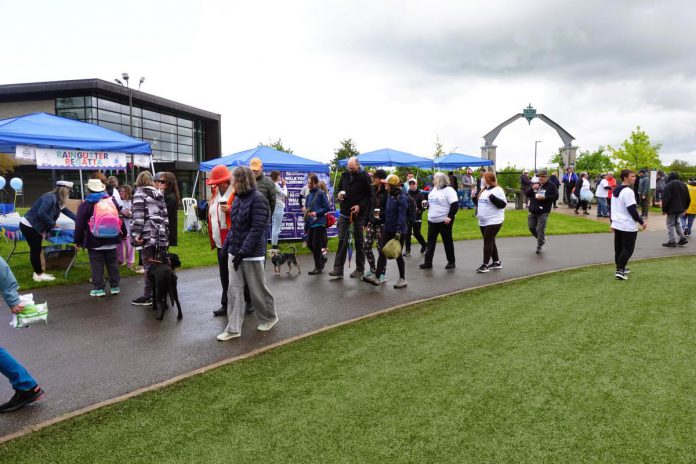
As they build, Dowdall listens to Bob tell stories about his career in the trades as well as his hobbies and interests, noting he “lights up when he talks” — all of which Dowdall attributes to Bob’s comfort level because he’s still living in his own home.
“The home is often a comfort space and it’s where they spend a lot of time,” Dowdall says. “It’s a lot easier for them to be more relaxed and more comfortable at home, especially for clients with mobility issues. Being at home makes a big difference.”
Over the months, Dowdall has also developed a strong relationship with Bob’s wife and son, who both live with him at home.
“They’re so amazing, kind, and generous so they’re always chatting with me, and it’s nice to have that connection as well,” Dowdall says. “They’re Bob’s biggest support system, and they also benefit from the visits too.”
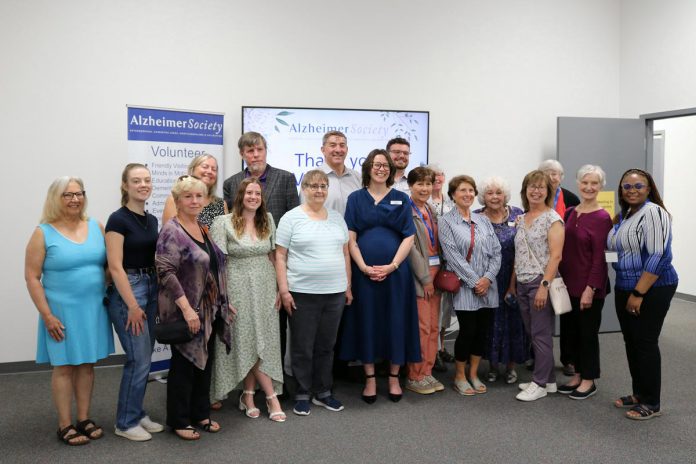
Arnold suggests that in-home recreation therapy is a popular choice for volunteers because it allows them to build these “one-on-one connections” with clients.
“Social stimulation is great for all forms of dementia,” he says. “Stimulating the brain is keeping you active and helping you engage in the community longer. We want to keep people in the community as long as we can, and having volunteers connect with people living with dementia really helps and keeps them engaged.”
Dowdall, who immediately felt a connection with Bob, saw first-hand how much impact just one hour per week can have on a person living with dementia.
“Bob said to me once ‘I don’t remember much nowadays, but I remember every week that you come,'” she says. “For me, that was so meaningful because it just meant that I was doing what I was supposed to be doing. We’ve built a really good relationship over the last many months, and it’s been really amazing to watch the progression and comfort level.”
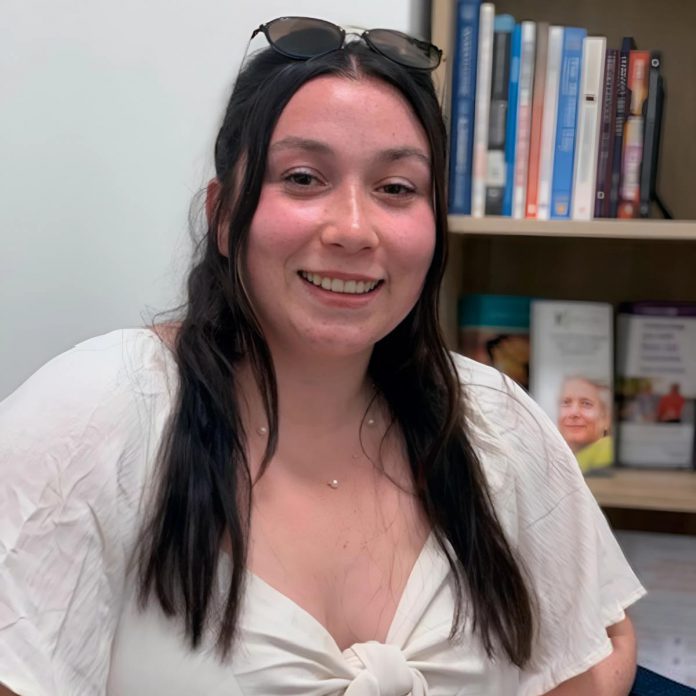
After Dowdall wrapped up her last session with Bob before moving to London to begin her master’s degree, she felt just as enriched by the experience as he did.
“It’s nice just to shine a little light into a community that often sits in a lot of darkness,” she says. “It’s such a fulfilling volunteer role to do and, while it does seem daunting from the outside, having that connection makes it so worth it.”
For more information about volunteering with the Alzheimer Society of Peterborough, Kawartha Lakes, Northumberland and Haliburton and to apply, visit alzheimer.ca/pklnh/en/take-action/volunteer or contact Maddy Scott by calling 705-748-5131 (toll free at 1-800-561-2588) or emailing volunteer@alzheimerjourney.ca.
This branded editorial was created in partnership with the Alzheimer Society of Peterborough, Kawartha Lakes, Northumberland and Haliburton. If your organization or business is interested in a branded editorial, contact us.





